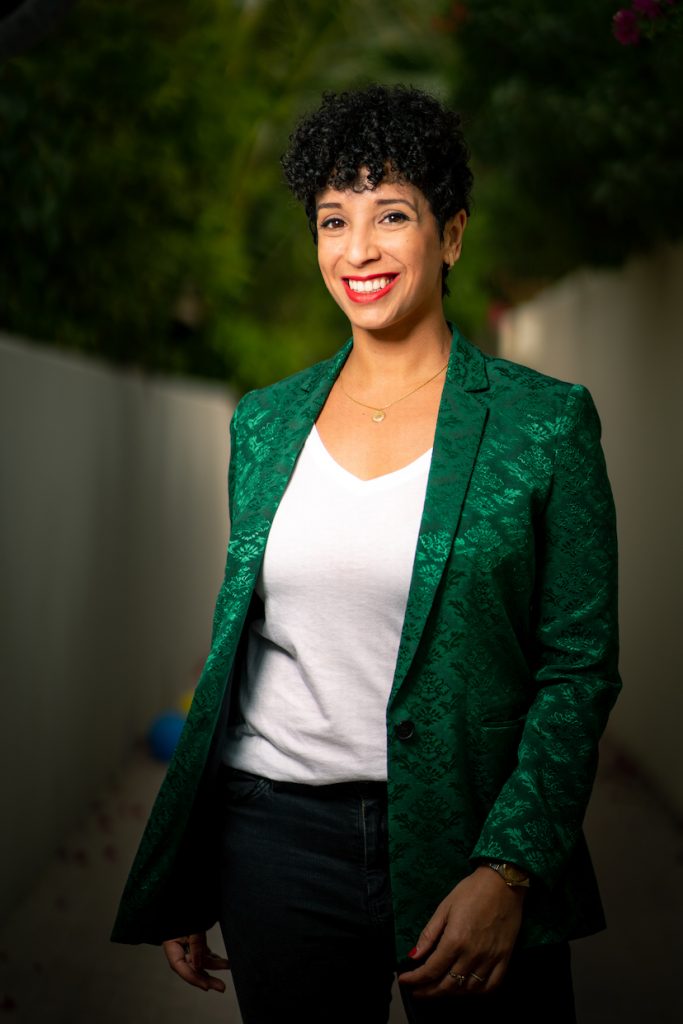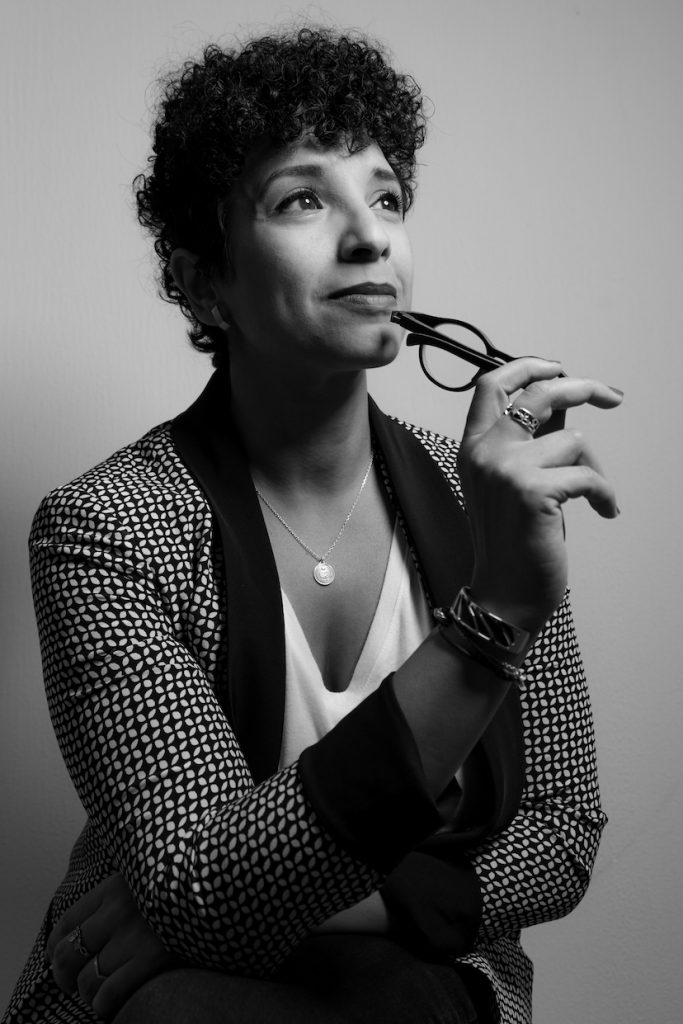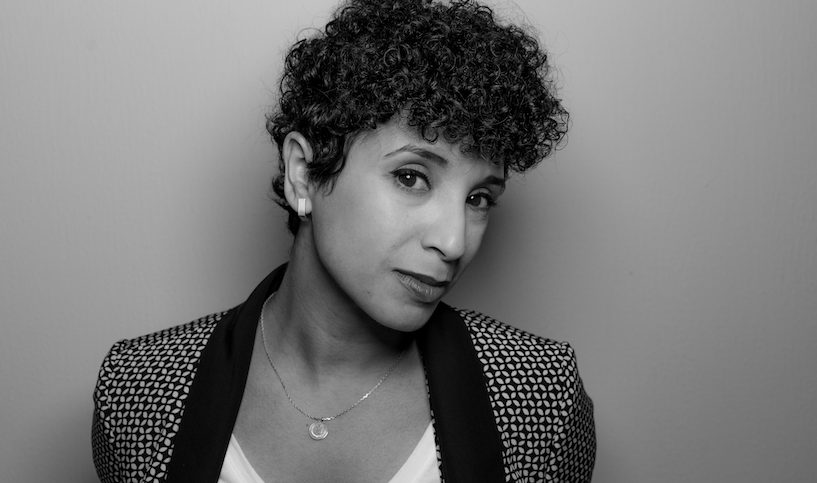Women have been using the phrase “breaking the glass ceiling” since the late 70s, describing the invisible barrier created by policies, social and cultural norms that have held women back. Luckily, we have been seeing more women push back and prove that the view from above the ceiling is so much better. We spoke to Shaima Abd Alghafoor, Senior Partnerships Manager at Booking.com and an advocate for women’s entry and advancement in the technology industry.
Your love for tech started at a young age with a Gateway computer at age 10. Could you tell me more about your story with technology as a child?
Receiving my first computer was definitely a memorable moment, one that I reflect back on from time to time. However, I wouldn’t particularly say my fascination with technology as an object started then. When you grow up in an analog era, and start seeing new technologies disrupt the way you watch tv, listen to music, or even take photos, one becomes fascinated and intrigued with the changes in consumption habits.
I spent a good part of my teenage years exploring these disruptions and trying to fulfill my excitement by staying on top of the trend. Most of my allowance was spent on any new device I could get my hands on. Even though I didn’t fully comprehend why I was fascinated with the new forms of technology , but I did recognize how they made our lives “a little bit better”. “A little bit better” has forever changed my perception to how I perceive the world.
Your undergraduate major was in Arts. English and Comparative Literature. Knowing what you know now, would you have chosen differently?
Absolutely not. Arts and literature develops a foundation to building captivating mediums and stories which connects to an audience. The creative process that goes behind it requires effective communication styles based on imagination and research. This approach allows you to creatively develop various ways to connect with an audience.
Later in life, I worked at companies that successfully built similar mediums through digital channels to connect with their audience. The foundations that I have developed as an undergraduate was valuable in enabling me to understand how to connect with audiences more effectively.
Do you think an education in the humanities actually helped you in any way?
Take the skills I mentioned earlier and picture how it can be impactful and applicable to business meetings, strategic planning, and effective product development. The foundations developed by studying the humanities allows you to understand how to work with different audience cohorts and more importantly, tailoring the experiences to each. It can be anything from conducting a meeting with partners from a different culture or devising a pipeline of products to an elderly audience segment. Being able to spark imagination by creatively thinking of the delivery only gives you a competitive advantage to successfully build great products and experiences.
You went on and got a Master’s degree in Integrated Marketing with a focus on digital marketing. Was that because you already knew you wanted to work in the startup/tech scene?
Once I graduated from college, I had a better outlook to what I wanted to do. Yes, I studied the arts, however, I met students from other programs, participated in various after school initiatives, and worked on a lot of projects that gave me better visibility to additional options available for a student. For example, in 2008, I was interning at a startup that was developing a voice recognition technology. My role was to find a group of students with different dialects in Arabic and recruit them to record their voices. Voice recognition was unheard of at the time. I didn’t even understand why I was recruiting students, but was intrigued to find out what the outcome was. Let’s fast forward a decade and see how far voice recognition has come. Take a look at Siri, Alexa, Google assist etc.
That internship was an eye opening experience and I realized that I needed to be part of this. I figured that getting another degree would be the most viable option. When searching for a Master’s program, I was looking for something that would be a natural progression to the undergraduate degree that I received, but closer to digital. Digital Marketing was the best option since it leverages digital channels as a medium to effectively communicate messages to an audience.

If you didn’t go into Tech, what else do you think would have satisfied your curiosity and drive?
I probably would have produced a Tony Awards musical. Jokes aside, I do enjoy musical productions. There is something about the theatre, the music, the costumes, and stories that captivates me. It probably has to do with the expressive way a musical speaks to it’s audience.
You have worked for giants like Yahoo and currently are at Booking.com, Did you plan your career this way or did it just happen organically? What have been your biggest career challenges? What is the best thing about working at Booking.com?
I never imagined I’d be where I am today and surely did not plan for it. However, now that we talk about my early fascination for technology, I’m not surprised that I managed make my way into this industry. Earlier I mentioned how technological advancements made people’s lives “a little bit better”. Working for both Yahoo & Booking.com made me feel like I was contributing the ever changing disruption. Yahoo changed the way users consume media on a daily basis while Booking.com shifted the way travelers plan their trips.
The best thing about working at both companies is the exposure to a global audience. With a global audience, you start thinking of how you can develop products and experiences beyond the regions one is familiar with, such as the Middle East. Moreover, both companies have presence in different parts of the world, which means that, at some point, you will be working closely with team members from San Francisco, Singapore, and Australia to get tasks done. The challenges to that is understanding the cultural difference and the different styles of working. It took me a few years to firstly, recognize this as a challenge and secondly understand ways to over come it. Nonetheless, the diversity that both companies offer strengthens your career development towards becoming a global team player.
Many young women think that these companies are closed to them and that they would never be able to land a job there, what would you tell them?
I don’t think women fear companies as much as they fear what society would think if they work at these companies. There is a misconception that working for large corporation means that you will sell your soul and have no life. As a Middle Eastern women, you are expected to play a larger role in the household and working for larger companies means that you will fail at motherhood, which is a a common misconception. Today, many companies are looking for ways to balance gender diversity and support women to succeed. For example, many companies offer maternal & paternal leaves up to 6 months. These companies also offer flexible working hours for mothers who want to work half days or 3 days a week. To clear any doubts, these companies are here in the region. So, my advice to any ambitious woman is to find a company that will support your personal and career development.
Why do you think it is important that there are more women in technology companies? Especially at the management level?
I’m not here to tell you what women are versus men. A company should recognize that the future of it’s growth is based on building a management team that reflects their customers and market. Putting their intuitive and creative skills aside, women are half the population. Which means that half of any company’s customers are women. They are an entire audience segment that are also decision makers. It is important to have women in management and part of the strategic process to targeting an entire customer base.

A lot of women are intimidated by technology and think it is a men-only industry, what would you like to say to them? What do you think is the biggest barrier for women in tech?
The startup and tech industry is growing at a rapid pace in the Middle East, one that requires participation from women, because let’s face it, half the consumers are women anyways. By engaging more women in the industry, we can collectively work together to build a successful economy and position this region in a competitive global tech landscape.
Women have been changing the tech industry for years and removing these barriers. As mentioned earlier, they are creating a healthier environment for women to work and thrive in their careers. Some notable women in tech work at the biggest companies in the world. For example, Sheryl Sandberg (Facebook), Gillian Tans (Booking.com), previously Marissa Mayer (Yahoo), Susan Woncicki (Youtube) and many more.
Do you think it could be that the preconception that tech is only for coders/geeks/nerds? What other jobs/skills can women bring to the tech industry that they might not be aware of?
Successful companies have marketers, accountants, sales people, creative designers, customer service representatives, office managers. The list goes on. They work closely with the coders/geeks/nerds that you mention to build these companies. All roles are complementary and dependent on to each other for global success.
Who are your career role models? Do you think having women role models in the industry is important for young women and why?
My career role models are women from the region who have had interesting journeys and successful careers. They are women who I’d like to learn from and reach out to when facing business challenges. For example, Muna Al Gurg is an Emirati well rounded business woman and philanthropist. Even though she does not work in technology, her experience to tackling the business world as a Khaleeji women, is one that I admire. I don’t think Muna knows this, but she is my silent mentor. I’ve reached out to her numerous times for advice to discuss similar challenges, despite her knowledge in technology. At the end of the day, technology is simply a product or experience that one sells.
Every women should have a role model, or someone they aspire to be like. A role model is simply a goal to one’s development. By having several role models, you’ve set your path to where you want to go in your career. Your role model does not necessarily have to be someone from your industry.
What are your favorite initiatives in the region that help women become more empowered in the STEM fields?
Five years ago, female empowerment and promoting STEM was at it’s nascent stage. I have to admit that we have come a long way in five years. Today, awareness levels have spread across Arab countries, universities and even companies. My favorite initiative that promotes women in general is Glowork. Glowork is a startup based in Saudi Arabia focusing on placing women in the workforce. They work closely with companies to create jobs for women and enable women to find work that meets a home/work balance. If you recall, earlier I mentioned that many companies are creating healthier environments for women to thrive in the workforce, and what Glowork does, is scout these companies and present them to women through a platform.
In your TedX Talk you close with advising your audience to “find a mentor and be a mentor”, what is the best way to be a mentor? And what is the best way to find a mentor today? Would it still be the advice you would give?
Ah yes. A mentor is crucial to one’s development. In my opinion, a mentor is not a dedicated individual that offers you a monthly one on one hour session, but a group of people you can openly reach out to when needing advice. The best way to utilize them is by having meaningful discussions that can be about anything you might require advice on – for example- How do deal with a challenging client? Or scheduling brainstorm session towards a topic. Or even someone to give you presentation tips. A mentor can be your colleague at work, a contact from your social circle, or even a family member.
In return, you should also be a mentor. One gains a lot of experience and skills in a career that can be useful to others around them. My advice to anyone who wants to be a mentor is to offer your support and be approachable for others to reach out to you at all times. Some of the people I mentor reach out to me on WhatsApp or email for quick advice on day to day activities. Find a communication channel that is easy for you to work with and support others.
If you would like to connect with Shaima you can find her via LinkedIn as shaimaghafoor. Featured image courtesy of Shaima Abd Alghafoor.










